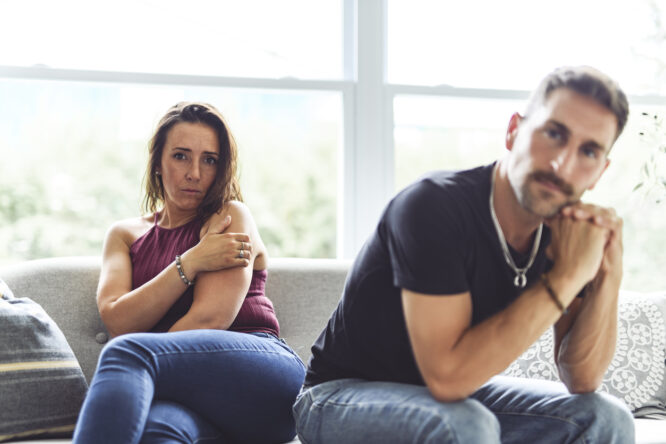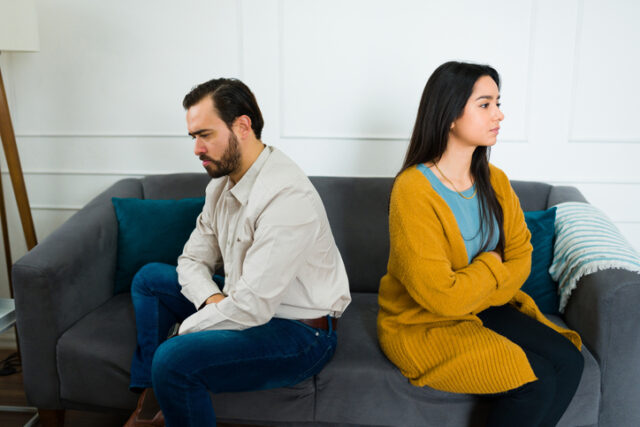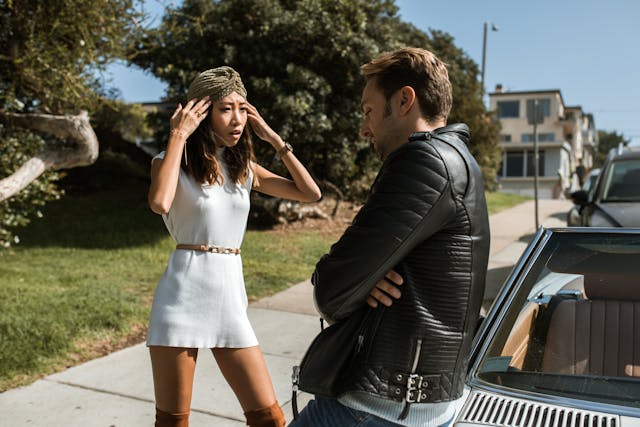Most people don’t want to keep ending up in messy or one-sided relationships, but somehow, they still do.

It happens to the best of us in life, but if it’s a regular occurrence in your life rather than a one-off, it’s worth asking why. The point isn’t to judge yourself, but to better understand the patterns that might be shaping your choices. Here are some very real, very human reasons you might keep falling into relationships that don’t feel good for you, and what they might be quietly trying to show you.
1. You confuse intensity with connection, and they’re really not the same.

If it feels like a whirlwind, you assume it must be love. Fast attachment, big feelings, dramatic highs and lows—they all feel like passion, but they’re often just chaos. Obviously, chaos can be addictive when you’re used to instability. The more familiar it feels, the more convincing it becomes. However, real connection doesn’t have to be dizzying. Sometimes it’s calm, safe, and steady, and that might feel boring until you learn to trust it.
2. You don’t fully believe you deserve more.

Even if you say you want something better, there might be a part of you that doesn’t fully believe it. Deep down, you might feel like kindness, stability, or emotional availability are things other people get, but not you. This belief usually forms early, but it sticks. Until you rewrite it, you’ll keep gravitating toward people who reflect your low expectations back at you.
3. You grew up around dysfunction, so it feels normal.

When your earliest examples of love involved criticism, control, or unpredictability, your brain wired itself to see that as “just how love works.” So even when it hurts, there’s something familiar about it—and that makes it hard to spot. That doesn’t mean you’re doomed to repeat the same story forever. However, it does mean you’ll need to question what your nervous system has labelled as “home.”
4. You tend to prioritise potential over reality.

You see the version of them that could exist. The soft side that shows up once every few weeks. The words they say but never back up. You hold on, hoping they’ll become that person for good if you just stick around long enough. Sadly, loving someone’s potential while ignoring their reality usually leads to heartbreak. It’s okay to want more for someone, but not at the cost of your own peace.
5. You’re scared of being alone, so you settle quickly.

Sometimes it’s not about how much you like someone—it’s about how much you hate the silence in between. That fear of loneliness can push you into relationships that aren’t right, just so you don’t have to sit with uncertainty or emptiness. The thing is, loneliness in a relationship feels even heavier. Learning to be okay with yourself is what makes you more discerning about who deserves a place beside you.
6. You confuse caretaking with connection.

You feel most useful when you’re fixing someone. You attract people who need support, direction, or saving, and you pour yourself into helping them. It makes you feel needed, but not necessarily loved. The line between compassion and codependency is thin. Helping someone should never cost you your emotional health or become the glue that holds the relationship together.
7. You mistake trauma bonding for closeness.

If you both share similar pain, it can feel like you get each other on a deep level. And sometimes, you do. The truth, of course, is that shared trauma isn’t always a foundation for healing—it can also fuel emotional volatility, co-dependence, or reactivity. Not every connection that feels intense is healthy. The strength of a bond isn’t in how much you’ve both suffered. It’s in how you treat each other day to day.
8. You learned to tolerate discomfort for the sake of love.

If love always came with conditions—be quiet, be smaller, don’t need too much—you might assume that discomfort is part of the deal. So when someone crosses a boundary, you tolerate it. When something hurts, you rationalise it. It’s not that you don’t recognise mistreatment—it’s that you’ve been trained to endure it. The work is learning that love isn’t supposed to be painful to prove it’s real.
9. You mistake validation for emotional safety.

You crave someone who makes you feel attractive, wanted, or chosen. While that’s not wrong, it becomes a trap if you use it to fill a deeper self-worth gap. You might overlook toxic traits just to hold onto the rush of being wanted. Validation can be addictive, but it’s not the same as emotional safety. One fades quickly. The other builds slowly, and sticks around even when you’re not performing.
10. You try to win love instead of receive it.

Part of you might still believe love has to be earned. So you work for it. You people-please, self-sacrifice, overfunction—thinking that if you do enough, you’ll finally be chosen. However, it leaves you drained, anxious, and resentful. Healthy love doesn’t make you audition. It accepts you as you are. You shouldn’t have to keep proving your worth just to stay in someone’s life.
11. You confuse emotional unavailability with mystery.

That person who runs hot and cold, who never really opens up, who keeps you guessing—they might seem fascinating. But often, that intrigue is just emotional unavailability wearing a nice coat. If you’re drawn to people who give just enough to keep you hooked but never fully show up, it’s worth asking why inconsistency feels so magnetic. Real intimacy isn’t a puzzle you have to solve.
12. You stay because you hope it will hurt less than leaving.

Walking away can feel like failure. Or maybe you’re terrified of the grief that comes after. So you convince yourself to stay a little longer, hoping things might turn around or get easier with time. However, dragging out pain doesn’t soften the landing. Often, it just delays your healing. Leaving is hard, but sometimes staying is what slowly breaks you down.
13. You’re drawn to what feels familiar, even if it hurts.

We all have emotional templates shaped by early relationships. If you were taught that love looks like criticism, silence, or inconsistency, part of you might feel most at home in those dynamics, no matter how much they hurt. That familiarity is powerful, but it’s not destiny. You can learn a new definition of love—one that feels strange at first, but safer in the long run.
14. You haven’t had many examples of healthy love.

If you’ve never actually seen a relationship where boundaries are respected, needs are communicated, and both people feel emotionally safe—it’s hard to aim for something you’ve never witnessed. You end up settling for what feels “good enough.” The first time you experience healthy love, it might feel unnatural. That’s okay. It just means you’re learning a new emotional language, and that’s something to be proud of.
15. You tell yourself things aren’t that bad.

Minimising your pain is a common survival tactic. You downplay the red flags, justify the bad behaviour, and compare your experience to worse ones—until you’ve convinced yourself you’re overreacting. The thing is, your discomfort is valid, even if someone else has had it worse. You don’t need extreme suffering to justify leaving something that no longer feels right.
16. You’re still healing, and that healing is messy.

Sometimes the reason you keep ending up in unhealthy relationships is simple: you’re still figuring it out. Healing isn’t linear, and learning what healthy love looks like takes time, mistakes, and self-compassion. You don’t have to have it all sorted to start doing better. Every time you notice a pattern, speak up for yourself, or walk away from something that drains you—that’s growth. Keep going.




